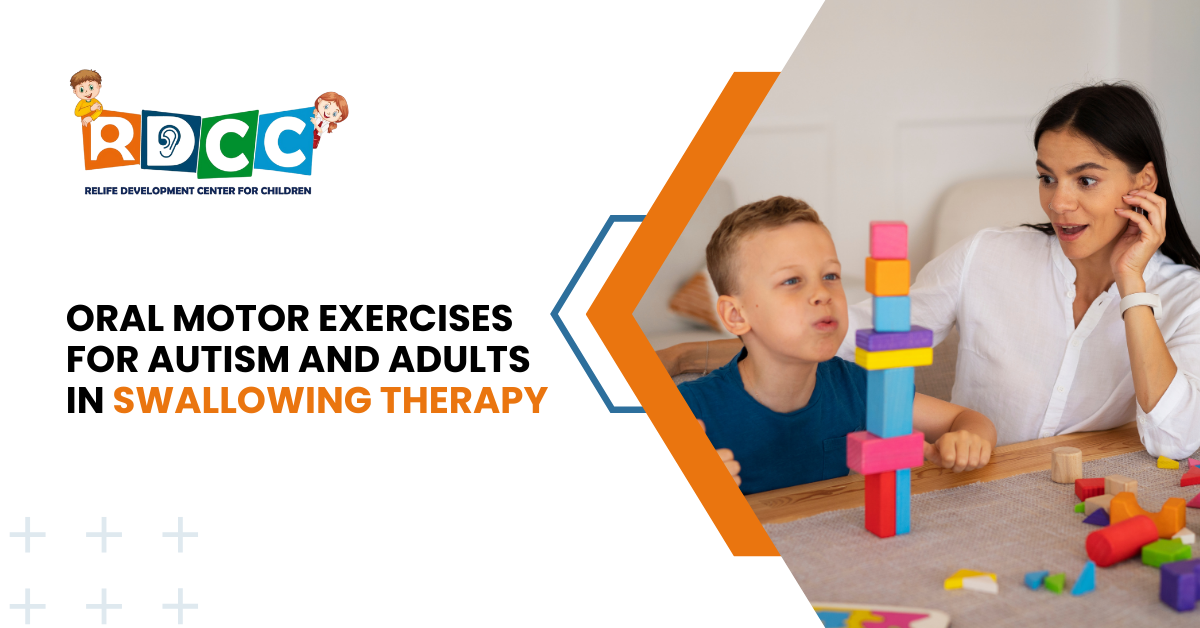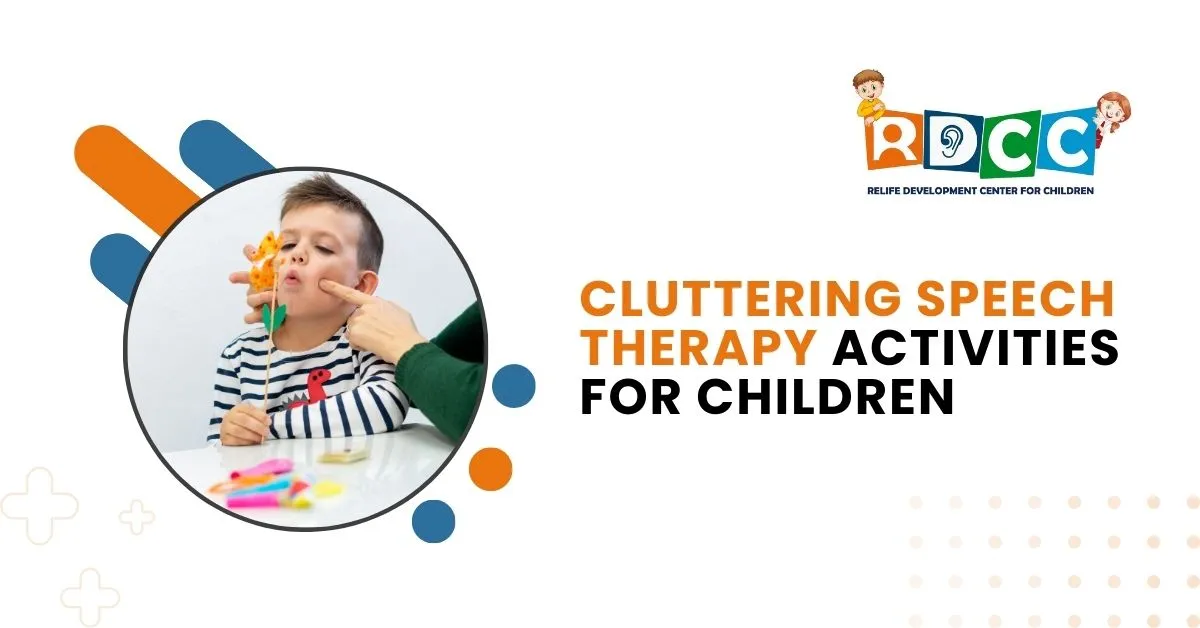
At RDCC Healthcare, Vadodara’s Leading Child Development Centre, we are committed to providing comprehensive care for individuals with various developmental and health challenges. One of our Focus Areas is Swallowing Therapy, which is crucial for both Children with Autism and Adults Experiencing Swallowing Difficulties. This blog explores the Role of Oral Motor Exercises in Swallowing Therapy, their Importance, and the Specific Techniques used to address these Issues.
What are Oral Motor Exercises?
Oral Motor Exercises are targeted activities designed to Strengthen the Muscles of the Mouth, Jaw, Tongue, and Throat. These exercises improve Coordination, Control, and Strength, which are essential for Efficient Speech and Swallowing Functions. For individuals with Autism and Adults facing Swallowing Issues, these Exercises can significantly Enhance their Quality of Life by improving their Ability to Eat, Drink, and Speak.
Importance of Swallowing Therapy
Swallowing Therapy, or Dysphagia Therapy, is vital for Individuals who have difficulty Swallowing. Dysphagia can lead to Serious Health Complications, including Malnutrition, Dehydration, and Aspiration Pneumonia. Swallowing Therapy aims to:
- Prevent Health Complications associated with Swallowing Difficulties.
- Improve the Safety and Efficiency of Swallowing.
- Enhance the Overall Quality of Life by allowing individuals to Enjoy a Wider Variety of Foods and Beverages.
Key Oral Motor Exercises for Autism
For Children with Autism, Oral Motor Exercise can be particularly beneficial in addressing Feeding Issues and Speech Difficulties. Some Key Exercises include:
Jaw Strengthening Exercises: Activities like Chewing on Resistive Foods or Objects to build Jaw Strength.
Tongue Exercises: Techniques such as Tongue Protrusion and Lateralization to improve Tongue Mobility and Coordination.
Lip Exercises: Activities like Blowing Bubbles or using Straws to Enhance Lip Strength and Control.
Facial Muscle Exercises: Making Exaggerated Facial Expressions to Strengthen the Muscles Used in Eating and Speaking.
Goals of Swallowing Therapy
Swallowing Therapy aims to achieve Several Critical Goals:
Improve Muscle Strength and Coordination: Strengthening the Muscles involved in Swallowing to enhance their Function.
Enhance Safety of Swallowing: Reducing the Risk of Aspiration by Improving the Control of Food and Liquids during Swallowing.
Increase Nutritional Intake: Enabling individuals to eat a Broader Range of Foods to meet their Nutritional Needs.
Boost Confidence and Independence: Helping Individuals gain Confidence in their Ability to Eat and Drink Safely, promoting Greater Independence.
Frequently Asked Questions
What are Oral Motor Exercises?
Oral Motor Exercises are activities Designed to Strengthen and Coordinate the Muscles involved in Speech and Swallowing.
Why is Swallowing Therapy Important?
Swallowing Therapy prevents Complications like Malnutrition and Aspiration, Improving the Safety and Efficiency of Swallowing.
What are Some Oral Motor Exercises for Autism?
Exercises include Jaw Strengthening, Tongue Mobility, Lip Control Activities, and Facial Muscle Exercises.
What are the Goals of Swallowing Therapy?
Goals include Improving Muscle Strength, Enhancing Swallowing Safety, Increasing Nutritional Intake, and Boosting Confidence and Independence.
Who can Benefit from Swallowing Therapy?
Children with Autism and Adults with Swallowing Difficulties due to various Conditions can Benefit from Swallowing Therapy.
Conclusion
Oral Motor Exercises play a Crucial Role in Swallowing Therapy, offering Significant Benefits for both Children with Autism and Adults with Swallowing Difficulties. At RDCC Healthcare in Vadodara, our Expert Therapists provide Personalized Swallowing Therapy Programs tailored to meet the Unique Needs of Individuals. By focusing on Strengthening Oral Motor Skills and Enhancing Swallowing Safety, we aim to improve the Overall Quality of Life for our Patients. For More Information on Our Swallowing Therapy Services, Contact RDCC Healthcare today.




